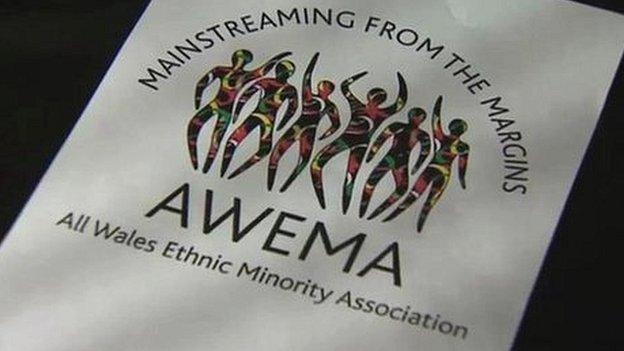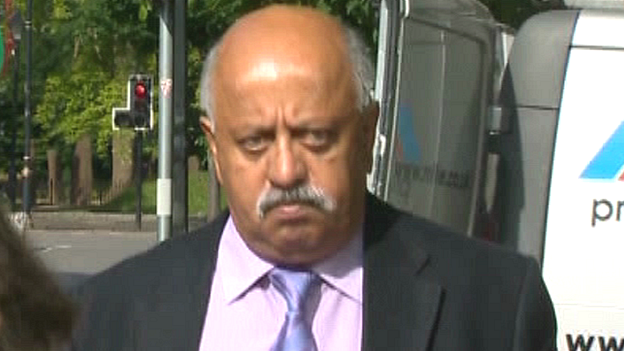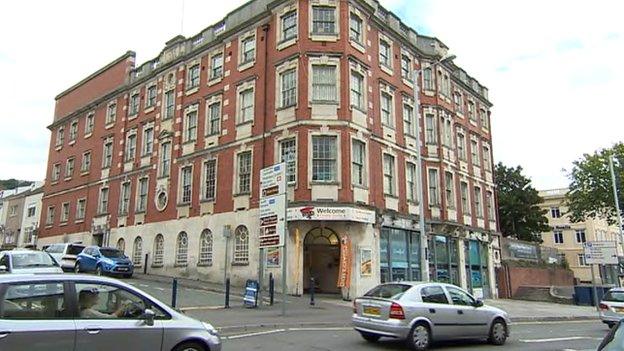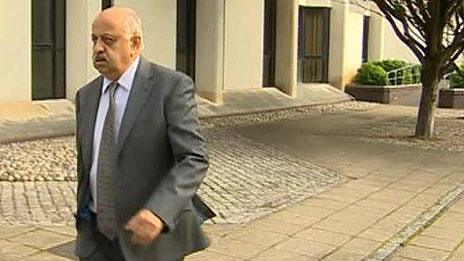Final chapter in Awema story?
- Published

Welsh ministers had been keen to channel money through a single body such as Awema
This could be the final chapter in the long-running story of Awema, which has been a significant one for a number of reasons, but primarily because this wasn't just one of the ethnic minority charities operating in Wales - it was the biggest.
The Welsh government wanted to have a single organisation that it could deal with on race relations issues, and it was the All Wales Ethnic Minority Association.
Over the course of a decade, more than £7m went through its books.
Most of the services it provided were sub-contracted out to other charities, so it was in a powerful position holding the purse strings.
And the man who was running it during that time was the chief executive Naz Malik, who has now been cleared of two of the three fraud charges he faced.
Salary increases
However, questions remain about the financial accountability of Awema, and these were outlined in a series of reports which ultimately led to the funding being withdrawn by the Welsh government and the charity being wound up two years ago.
They include claims that he increased his own salary without authorisation from the board, that he promoted his daughter within the organisation, without internal or external competition, and that her salary more than doubled over a period of more than three and a half years.
At the time Naz Malik refused to comment, but the chairwoman at the time, Rita Austin, robustly defended the charity, saying the criticism was a time-honoured way of debasing and devaluing the contribution of black and minority ethnic people.
And there were also big questions about the role of the Welsh government, when auditors found that civil servants had repeatedly failed to follow up concerns that were expressed about the accountability.

Naz Malik has been cleared of two of the three fraud charges he faced.
The legacy of what happened at Awema will be felt strongly among the existing charities representing black and ethnic minority communities.
They say it will take some time to fully recover.
Taha Idris, chief executive of the Swansea Bay Regional Equality Council, said publicity surrounding problems at Awema over many years had damaged the confidence people have in other charities.
"The whole Awema affair is not just about personalities, it was about policies and procedures and the way that the organisation was run which led to its downfall," he said.
"Still, there will be people out there who will continue to think of Awema, they will not think of the fact that the chief executive has been acquitted of these serious allegations.
"They will continue to think of Awema so it's going to be a few years before we can actually eradicate that stereotype and that philosophy from the minds of people."

Awema was based in this building in Swansea until it was wound up in 2012
The Welsh government has also introduced changes in the way that it gives out around £300m a year in grants to charities.
It includes standardising the kinds of things charities need to do to be eligible for grants, such as the trustees holding regular meetings and ensuring the proceedings are accurately recorded.
The Welsh government says those changes were being introduced anyway, but the Welsh Council for Voluntary Action (WCVA), which represents charities, says the problems at Awema gave the motivation for those changes a sense of urgency.
And while Taha Idris believes there has been some damage to the image of race relations charities, the WCVA believes that overall that damage is limited.
It feels the public has a lot of trust in charities and by and large that has held up, which of course is critical for the bodies, because around a third of their incomes comes directly from the public.
- Published29 August 2014
